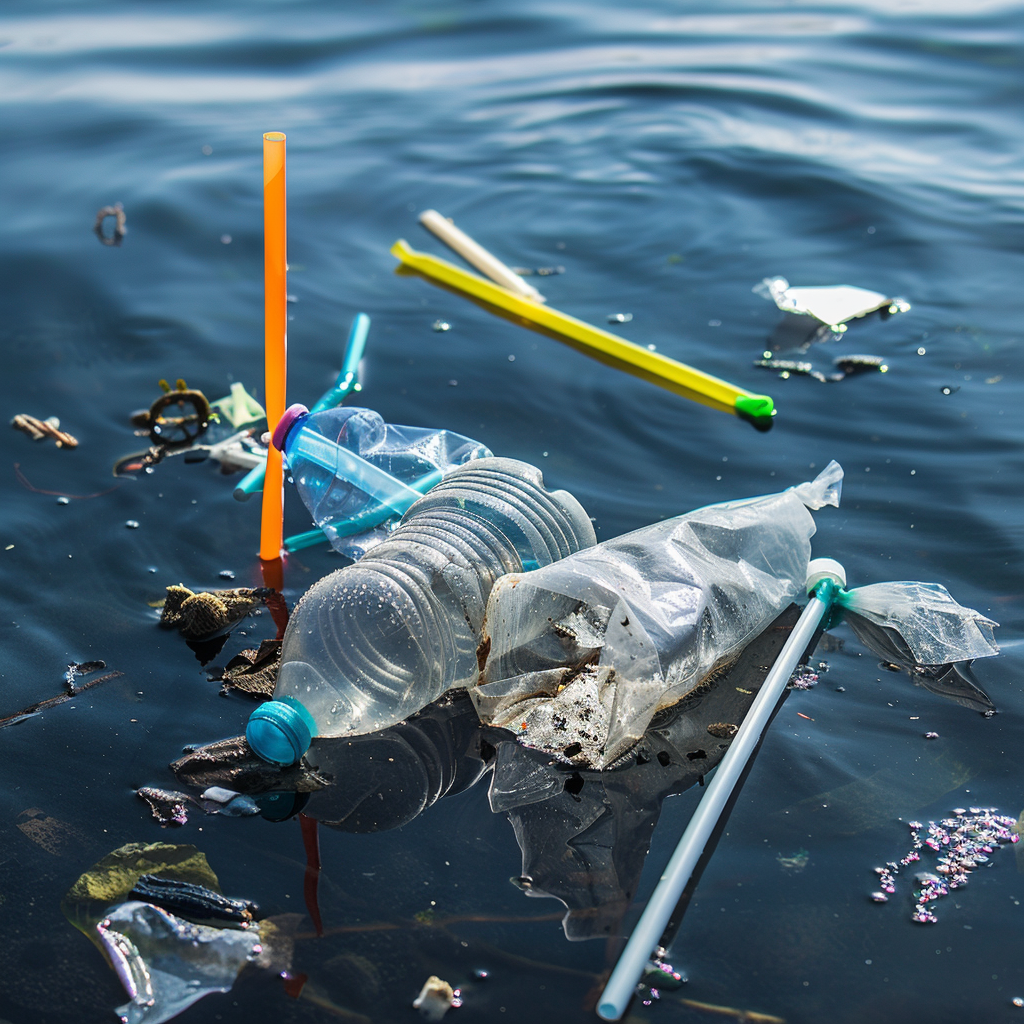

The world’s oceans have long been plagued by the scourge of plastic pollution, with conventional plastic straws contributing significantly to this environmental crisis. However, the advent of biodegradable drinking straws developed by the Woods Hole Oceanographic Institute (WHOI) in collaboration with Eastman offers a beacon of hope. Unlike traditional plastic straws, these certified compostable straws degrade much faster and do not leave harmful residues, making them safe for marine life. Designed to meet the operational standards of conventional straws, they provide an eco-friendly alternative that is particularly beneficial for businesses and organisations committed to sustainability. In addition to these innovative straws, paper straws are also gaining popularity for use with soft drinks, and many of these options are individually wrapped to ensure hygiene. By adopting these biodegradable drinking straws and paper straws, businesses can reduce their environmental impact, align with consumer demand for greener products, and foster a sustainable future.
The journey to creating a drinking straw that degrades faster than paper began with an ambitious collaboration between the Woods Hole Oceanographic Institute (WHOI) and Eastman. Recognising the urgent need to address marine litter caused by conventional plastic straws, the two entities pooled their expertise in oceanography and materials science. Their innovative research led to the development of a bioplastic boba straw that not only meets the functional requirements of traditional straws but also breaks down at an accelerated rate, minimising environmental impact. This sturdy and durable product emerged from rigorous testing and refinement, ultimately achieving a balance between durability during use and rapid degradation post-disposal. It is designed to compost efficiently and is FSC certified, ensuring responsible sourcing. This advancement marks a significant milestone in the pursuit of sustainable alternatives to single-use plastics, reflecting a commitment to both environmental preservation and the demands for eco-friendly products in the marketplace. By stocking these new drinking straws, we can make a significant difference in reducing plastic waste.
Marine litter, particularly from conventional plastic straws, has been a persistent environmental challenge, significantly contributing to ocean pollution. In response, an innovative range of compostable straws developed by the Woods Hole Oceanographic Institute (WHOI) in partnership with Eastman is set to make a substantial impact. These groundbreaking eco-friendly straws, which include options such as boba straws and bamboo straws, degrade faster than paper, drastically reducing the long-term presence of plastics in the marine environment. Made from sustainable materials like PLA, this innovation offers a functional and sustainable alternative to traditional plastic straws. Restaurants and businesses committed to reducing their ecological footprint can now adopt these compostable straws to match their sustainability goals, satisfy consumer demand for eco-friendly products, and help pave the way towards a cleaner, healthier planet.
The integration of eco-friendly straws into the UK business landscape represents a significant step towards sustainability. As businesses and organisations increasingly commit to reducing their ecological footprint, the adoption of certified compostable straws offers an effective solution to combat plastic pollution. These next-generation straws, designed to degrade rapidly without leaving toxic residues, align perfectly with consumer preferences for greener products. Available in a variety of colours, these straws can be composted, making them particularly beneficial for industries such as hospitality and food service. Eco-friendly straws not only enhance environmental sustainability but also improve market appeal and customer satisfaction. Their use encourages sustainable procurement practices and can potentially lead to regulatory changes that support environmentally sound business operations. By embracing these innovative straws, UK businesses can shop for the perfect eco-friendly options, depend on their certified compostable nature, and lead in the global movement towards a more sustainable future, setting a benchmark in environmental responsibility and stewardship.
In today’s environmentally conscious marketplace, consumer demand is increasingly skewing towards products and services that prioritise sustainability. This growing trend offers businesses a unique opportunity to align with eco-friendly practices and meet the expectations of a more aware consumer base. Bioplastic straws, with their faster degradation rates and non-toxic residues, present an exemplary case for such alignment. These innovative straws not only address the pervasive issue of plastic pollution but also enhance brand reputation by showcasing a commitment to environmental stewardship. For businesses, particularly in sectors like hospitality and food service, the adoption of bioplastic straws can lead to increased customer loyalty, positive public perception, and a competitive edge. By responding to the green wave of consumer demand, businesses can not only contribute to a healthier planet but also secure their foothold in a future-oriented market.
In the hospitality industry, integrating sustainable practices is increasingly becoming a benchmark of excellence. Introducing biodegradable straws in your establishment offers myriad benefits that extend beyond environmental impact. These innovative straws help reduce plastic pollution significantly by degrading faster and leaving no harmful residues, aligning perfectly with an eco-conscious agenda. Additionally, offering biodegradable straws enhances your establishment’s appeal to a growing demographic of environmentally aware customers, fostering loyalty and positive word-of-mouth. The shift towards biodegradable options can also result in improved regulatory compliance and positioning your business as a leader in sustainability, giving you a competitive edge. Adopting such green solutions not only supports global efforts to preserve the environment but also resonates well with consumer expectations, ensuring your hospitality business remains relevant and respected in today’s market.
The adoption of bioplastic straws is catalysing significant shifts in supply chain practices, promoting a greener future across various industries. By integrating these eco-friendly alternatives, businesses are not only addressing the critical issue of plastic pollution but are also redefining their procurement strategies to prioritise sustainability. The rapid degradation rates and non-toxic residues of bioplastic straws minimise environmental impact, fostering a more responsible production and disposal process. This transition supports a circular economy model, where materials are reused and recycled, reducing reliance on finite resources. Consequently, companies that embrace bioplastic straws within their supply chains can improve their environmental footprint, comply with increasingly stringent regulatory requirements, and meet rising consumer expectations for sustainable practices. These positive shifts ultimately drive innovation and collaboration, paving the way for a comprehensive approach to environmentally sound supply chain management.
The UK manufacturing sector is at the forefront of addressing environmental sustainability by incorporating biodegradable straws into their production lines. This timely move not only confronts the escalating issue of plastic pollution but also aligns with the sector’s commitment to sustainable development. By adopting bioplastic straws that degrade rapidly and leave no toxic residues, manufacturers are contributing to the creation of a circular economy wherein resources are optimally reused and recycled. This shift not only supports the industry’s regulatory compliance efforts but also enhances corporate social responsibility, drawing in eco-conscious consumers and maintaining a competitive market presence. Furthermore, the integration of biodegradable straws into manufacturing processes is driving innovation and efficiency, setting new standards of environmental stewardship within the industry. As a result, UK manufacturers are not just adapting to market demands but are actively leading the charge in promoting sustainability on a global scale.
Investing in bioplastic straws is crucial for businesses aiming to lead the charge towards a cleaner planet. These sustainable alternatives to traditional plastic straws play a vital role in addressing the global plastic pollution crisis. Their rapid degradation and non-toxic residues support the shift towards a circular economy, where materials are continuously reused and recycled, minimising environmental impact. For businesses, particularly within the UK manufacturing and hospitality sectors, incorporating bioplastic straws signifies a commitment to environmental sustainability and aligns with the growing consumer demand for eco-friendly products. This not only improves company reputations and meets regulatory compliance but also drives innovation and operational efficiency. By prioritising the adoption of bioplastic straws, businesses can contribute to a larger movement aimed at preserving the planet for future generations, establishing themselves as leaders in sustainability while capitalising on an emerging market trend.

This website uses cookies to improve your experience. Choose what you're happy with.
Required for the site to function and can't be switched off.
Help us improve the website. Turn on if you agree.
Used for ads and personalisation. Turn on if you agree.
This website uses cookies to improve your experience. Choose what you're happy with.
Required for the site to function and can't be switched off.
Help us improve the website. Turn on if you agree.
Used for ads and personalisation. Turn on if you agree.